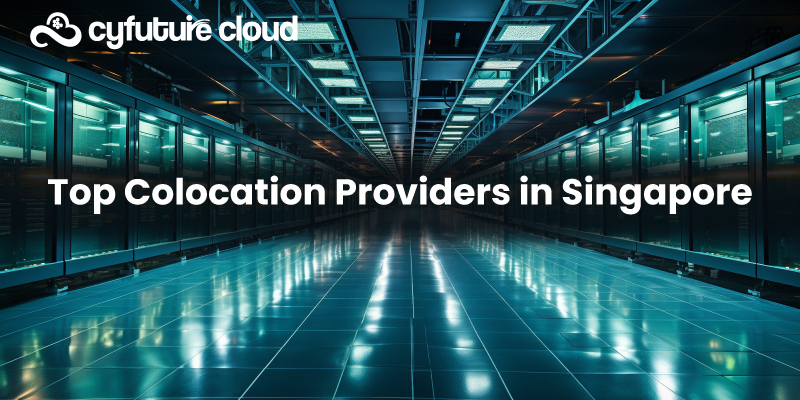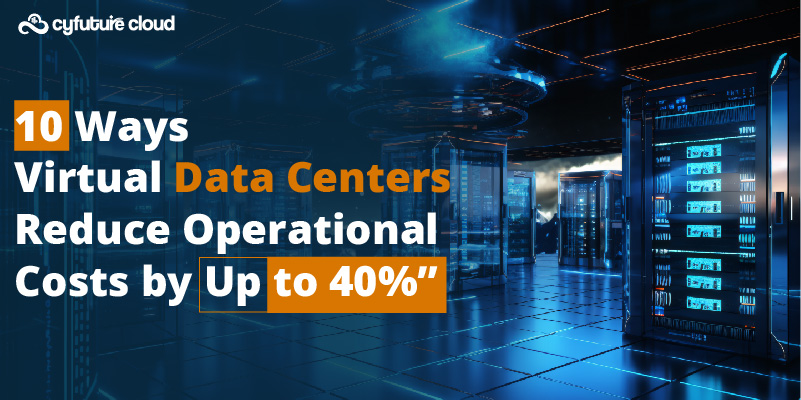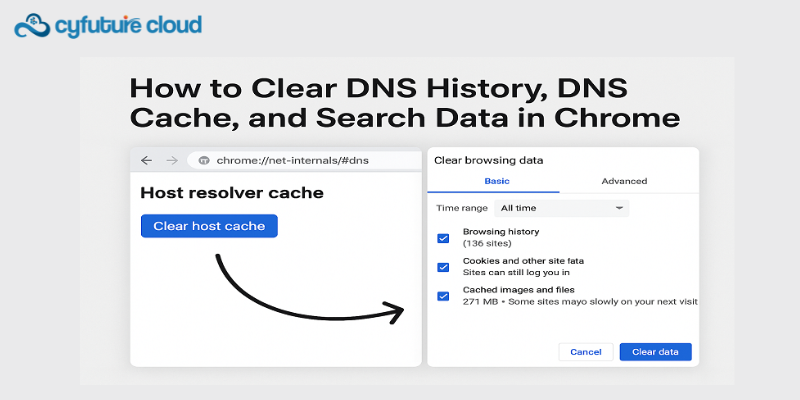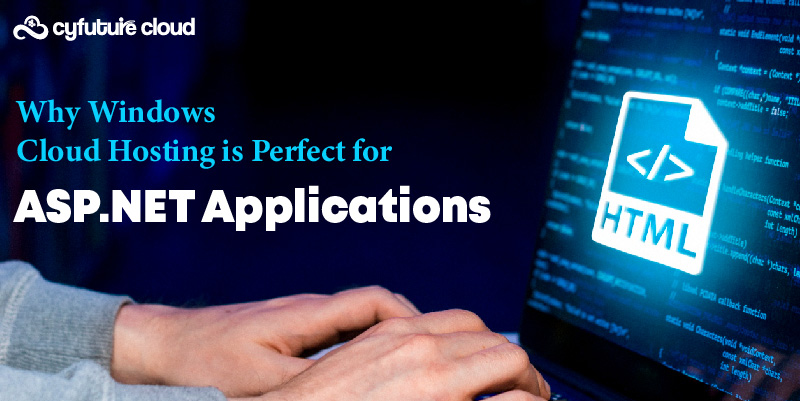Get 69% Off on Cloud Hosting : Claim Your Offer Now!
- Products
-
Compute
Compute
- Predefined TemplatesChoose from a library of predefined templates to deploy virtual machines!
- Custom TemplatesUse Cyfuture Cloud custom templates to create new VMs in a cloud computing environment
- Spot Machines/ Machines on Flex ModelAffordable compute instances suitable for batch jobs and fault-tolerant workloads.
- Shielded ComputingProtect enterprise workloads from threats like remote attacks, privilege escalation, and malicious insiders with Shielded Computing
- GPU CloudGet access to graphics processing units (GPUs) through a Cyfuture cloud infrastructure
- vAppsHost applications and services, or create a test or development environment with Cyfuture Cloud vApps, powered by VMware
- Serverless ComputingNo need to worry about provisioning or managing servers, switch to Serverless Computing with Cyfuture Cloud
- HPCHigh-Performance Computing
- BaremetalBare metal refers to a type of cloud computing service that provides access to dedicated physical servers, rather than virtualized servers.
-
Storage
Storage
- Standard StorageGet access to low-latency access to data and a high level of reliability with Cyfuture Cloud standard storage service
- Nearline StorageStore data at a lower cost without compromising on the level of availability with Nearline
- Coldline StorageStore infrequently used data at low cost with Cyfuture Cloud coldline storage
- Archival StorageStore data in a long-term, durable manner with Cyfuture Cloud archival storage service
-
Database
Database
- MS SQLStore and manage a wide range of applications with Cyfuture Cloud MS SQL
- MariaDBStore and manage data with the cloud with enhanced speed and reliability
- MongoDBNow, store and manage large amounts of data in the cloud with Cyfuture Cloud MongoDB
- Redis CacheStore and retrieve large amounts of data quickly with Cyfuture Cloud Redis Cache
-
Automation
Automation
-
Containers
Containers
- KubernetesNow deploy and manage your applications more efficiently and effectively with the Cyfuture Cloud Kubernetes service
- MicroservicesDesign a cloud application that is multilingual, easily scalable, easy to maintain and deploy, highly available, and minimizes failures using Cyfuture Cloud microservices
-
Operations
Operations
- Real-time Monitoring & Logging ServicesMonitor & track the performance of your applications with real-time monitoring & logging services offered by Cyfuture Cloud
- Infra-maintenance & OptimizationEnsure that your organization is functioning properly with Cyfuture Cloud
- Application Performance ServiceOptimize the performance of your applications over cloud with us
- Database Performance ServiceOptimize the performance of databases over the cloud with us
- Security Managed ServiceProtect your systems and data from security threats with us!
- Back-up As a ServiceStore and manage backups of data in the cloud with Cyfuture Cloud Backup as a Service
- Data Back-up & RestoreStore and manage backups of your data in the cloud with us
- Remote Back-upStore and manage backups in the cloud with remote backup service with Cyfuture Cloud
- Disaster RecoveryStore copies of your data and applications in the cloud and use them to recover in the event of a disaster with the disaster recovery service offered by us
-
Networking
Networking
- Load BalancerEnsure that applications deployed across cloud environments are available, secure, and responsive with an easy, modern approach to load balancing
- Virtual Data CenterNo need to build and maintain a physical data center. It’s time for the virtual data center
- Private LinkPrivate Link is a service offered by Cyfuture Cloud that enables businesses to securely connect their on-premises network to Cyfuture Cloud's network over a private network connection
- Private CircuitGain a high level of security and privacy with private circuits
- VPN GatewaySecurely connect your on-premises network to our network over the internet with VPN Gateway
- CDNGet high availability and performance by distributing the service spatially relative to end users with CDN
-
Media
-
Analytics
Analytics
-
Security
Security
-
Network Firewall
- DNATTranslate destination IP address when connecting from public IP address to a private IP address with DNAT
- SNATWith SNAT, allow traffic from a private network to go to the internet
- WAFProtect your applications from any malicious activity with Cyfuture Cloud WAF service
- DDoSSave your organization from DoSS attacks with Cyfuture Cloud
- IPS/ IDSMonitor and prevent your cloud-based network & infrastructure with IPS/ IDS service by Cyfuture Cloud
- Anti-Virus & Anti-MalwareProtect your cloud-based network & infrastructure with antivirus and antimalware services by Cyfuture Cloud
- Threat EmulationTest the effectiveness of cloud security system with Cyfuture Cloud threat emulation service
- SIEM & SOARMonitor and respond to security threats with SIEM & SOAR services offered by Cyfuture Cloud
- Multi-Factor AuthenticationNow provide an additional layer of security to prevent unauthorized users from accessing your cloud account, even when the password has been stolen!
- SSLSecure data transmission over web browsers with SSL service offered by Cyfuture Cloud
- Threat Detection/ Zero DayThreat detection and zero-day protection are security features that are offered by Cyfuture Cloud as a part of its security offerings
- Vulnerability AssesmentIdentify and analyze vulnerabilities and weaknesses with the Vulnerability Assessment service offered by Cyfuture Cloud
- Penetration TestingIdentify and analyze vulnerabilities and weaknesses with the Penetration Testing service offered by Cyfuture Cloud
- Cloud Key ManagementSecure storage, management, and use of cryptographic keys within a cloud environment with Cloud Key Management
- Cloud Security Posture Management serviceWith Cyfuture Cloud, you get continuous cloud security improvements and adaptations to reduce the chances of successful attacks
- Managed HSMProtect sensitive data and meet regulatory requirements for secure data storage and processing.
- Zero TrustEnsure complete security of network connections and devices over the cloud with Zero Trust Service
- IdentityManage and control access to their network resources and applications for your business with Identity service by Cyfuture Cloud
-
-
Compute
- Solutions
-
Solutions
Solutions
-
 Cloud
Hosting
Cloud
Hosting
-
 VPS
Hosting
VPS
Hosting
-
GPU Cloud
-
 Dedicated
Server
Dedicated
Server
-
 Server
Colocation
Server
Colocation
-
 Backup as a Service
Backup as a Service
-
 CDN
Network
CDN
Network
-
 Window
Cloud Hosting
Window
Cloud Hosting
-
 Linux
Cloud Hosting
Linux
Cloud Hosting
-
Managed Cloud Service
-
Storage as a Service
-
 VMware
Public Cloud
VMware
Public Cloud
-
 Multi-Cloud
Hosting
Multi-Cloud
Hosting
-
 Cloud
Server Hosting
Cloud
Server Hosting
-
 Bare
Metal Server
Bare
Metal Server
-
 Virtual
Machine
Virtual
Machine
-
 Magento
Hosting
Magento
Hosting
-
Remote Backup
-
 DevOps
DevOps
-
 Kubernetes
Kubernetes
-
 Cloud
Storage
Cloud
Storage
-
NVMe Hosting
-
 DR
as s Service
DR
as s Service
-
-
Solutions
- Marketplace
- Pricing
- Resources
- Resources
-
By Product
Use Cases
-
By Industry
- Company
-
Company
Company
-
Company
Why Dedicated Servers Are Essential for AI and GPU-Accelerated Workloads?
Table of Contents
- 1. Unmatched Computational Power for AI and Deep Learning
- 2. Exclusive Resource Allocation and Scalability
- 3. High-Speed Data Access and Storage
- 4. Enhanced Security and Compliance
- 5. Reliability and Uptime
- 6. Cost-Effectiveness for Large-Scale AI Projects
- 7. Specialized Hardware for AI Acceleration
- Industry Trends and Real-World Impact
- In summary:
Artificial intelligence (AI) and GPU-accelerated workloads have become the backbone of modern innovation, powering everything from real-time analytics and autonomous vehicles to advanced recommendation engines and large-scale language models. To fully unlock the potential of these compute-intensive technologies, choosing the right infrastructure is no longer optional—it’s mission-critical.
Dedicated servers remain the gold standard for organizations running high-performance AI environments. Whether deploying Windows Dedicated Servers for applications that rely on Microsoft’s ecosystem or opting for a Linux Dedicated Server to leverage the stability, flexibility, and open-source capabilities of Linux, these architectures deliver the raw compute power, low latency, and deep configurability required for complex AI lifecycles. Their isolated, single-tenant nature ensures a secure and reliable environment tailored for heavy workloads like model training, simulation, and massive parallel processing.
For workloads requiring extreme parallelism and advanced computing capability, a GPU Cloud Server adds another dimension of performance. With optimized GPU cores designed explicitly for AI and machine learning, GPU cloud platforms accelerate model training, inference, deep learning, and large-scale data processing at a speed far surpassing traditional CPU-based systems. They also provide scalable on-demand resources, making them ideal for burst workloads, research labs, and enterprises experimenting with new AI models.
In today’s rapidly evolving digital landscape, the combination of powerful dedicated servers and GPU-accelerated cloud infrastructure empowers businesses to achieve groundbreaking results. From supporting high-performance neural networks to enabling distributed AI pipelines, these solutions provide the precision, reliability, and future-ready capabilities needed to drive innovation forward.
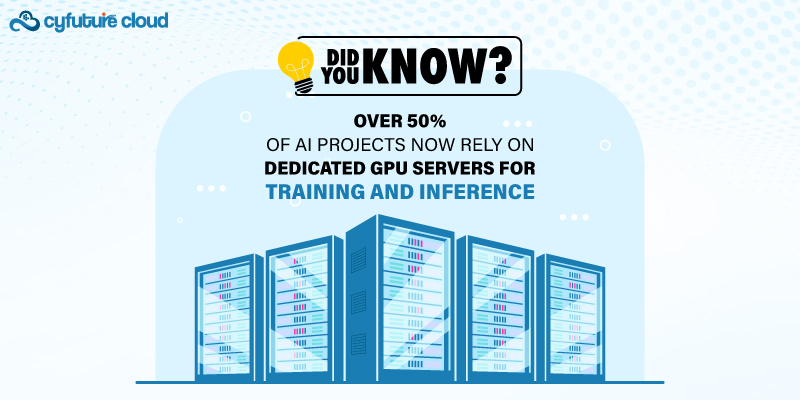
1. Unmatched Computational Power for AI and Deep Learning
- AI model training and inference require immense processing power. Dedicated servers, especially those equipped with high-performance GPUs, deliver the raw computational muscle needed to handle complex algorithms and massive datasets. For example, the AI hardware market—driven largely by GPU-accelerated dedicated servers—was valued at $17 billion in 2022 and is projected to reach $89 billion by 2030, growing at a CAGR of 23.5%.
- Real-time applications demand ultra-low latency. Industries such as autonomous vehicles and financial trading require response times under 10 milliseconds. Only dedicated servers, with exclusive access to hardware, can consistently meet these stringent requirements.
2. Exclusive Resource Allocation and Scalability
- No resource contention: Unlike shared or virtualized environments, dedicated servers provide exclusive access to CPU, GPU, RAM, and storage. This ensures that AI workloads are not slowed down by other tenants, maximizing throughput and consistency.
- Scalability: As AI projects grow, so do their computational needs. Dedicated servers can be easily scaled—by adding more GPUs, memory, or storage—to accommodate larger models or increased data volumes without performance bottlenecks.
3. High-Speed Data Access and Storage
- Fast data retrieval: AI and machine learning (ML) applications often process terabytes of data. Dedicated servers, equipped with SSDs and RAID configurations, guarantee rapid data access and high I/O throughput, which is crucial for both training and inference phases.
- Efficient data management: The ability to handle extensive datasets efficiently is a key advantage, ensuring that data pipelines remain unblocked and AI cloud models can be trained or deployed without delay.
4. Enhanced Security and Compliance
- Data privacy: AI workloads frequently involve sensitive or proprietary data. Dedicated servers offer robust security features—such as encryption, firewalls, and intrusion detection—that help organizations meet regulatory requirements and protect intellectual property.
- Controlled access: With full control over the server environment, businesses can implement custom security policies, further reducing the risk of breaches or unauthorized data access.
5. Reliability and Uptime
- Mission-critical AI applications require continuous availability. Dedicated servers are renowned for their high reliability, with enterprise-grade hardware and 24/7 monitoring minimizing downtime and ensuring consistent performance.
- Dedicated support: Many providers offer specialized technical support for dedicated server customers, which is vital for troubleshooting and optimizing AI workloads.
6. Cost-Effectiveness for Large-Scale AI Projects
- Long-term savings: While the initial investment in dedicated servers may be higher than shared or virtualized solutions, the long-term benefits—resource optimization, reduced downtime, and elimination of overhead costs—make them more cost-effective for resource-intensive AI and GPU workloads.
- 48% of enterprises adopting AI have shifted to dedicated servers due to the improved performance and reliability over shared cloud resources.
7. Specialized Hardware for AI Acceleration
- Multi-GPU setups: Dedicated servers can be configured with multiple GPUs, deep learning-optimized processors, and high-bandwidth interconnects, catering specifically to the needs of AI and ML workloads.
- Customizable environments: Organizations can tailor server configurations to match the exact requirements of their AI projects, from memory and storage to networking and security.
Industry Trends and Real-World Impact
- AI adoption is accelerating across sectors, and dedicated servers are at the heart of this transformation. From healthcare and finance to manufacturing and entertainment, organizations are leveraging dedicated infrastructure to deploy smarter, faster, and more reliable AI solutions.
- Performance benchmarks consistently show that dedicated servers outperform shared and virtualized environments in both training speed and inference latency for deep learning models.
In summary:
Dedicated servers are not just an option—they are a necessity for organizations serious about AI and GPU as a Service accelerated workloads. They provide the horsepower, security, and reliability required to unlock the full potential of artificial intelligence, ensuring that businesses stay ahead in the era of intelligent automation.
Recent Post

Stay Ahead of the Curve.
Join the Cloud Movement, today!
© Cyfuture, All rights reserved.
Send this to a friend

 Pricing
Calculator
Pricing
Calculator
 Power
Power
 Utilities
Utilities VMware
Private Cloud
VMware
Private Cloud VMware
on AWS
VMware
on AWS VMware
on Azure
VMware
on Azure Service
Level Agreement
Service
Level Agreement 















